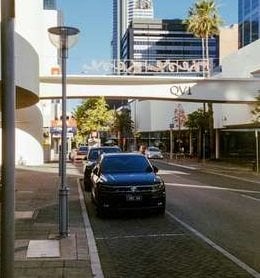Can this new proposal slash thousands off your vehicle? Here's what you need to know
By
Danielle F.
- Replies 45
For many Australians, the prospect of buying a new vehicle can be both exciting and daunting.
It's a significant investment, and Aussies are looking for ways to save without compromising on quality or safety.
That's why the latest promises coming out of Canberra have caught many motorists' attention.
Opposition Leader Peter Dutton made a bold pledge that could see West Australians—and potentially all Australians—save thousands on new vehicles.
Mr Dutton promised to scrap an 'unfair' tax on family cars and utes.
This announcement was part of his broader appeal to make Western Australia boom.
The proposal was also meant to address the cost-of-living pressures faced by many.

The 'unfair' tax in question was the Labor government's New Vehicle Efficiency Standard.
The goal of this standard was to encourage the uptake of cleaner, more fuel-efficient cars.
It should also align with Australia's commitment to net zero emissions by 2050.
'This is a tax on families who need a reliable car and small businesses trying to grow. Instead of making life easier, Labor is making it harder and more expensive,' Mr Dutton said.
'A Coalition Government will scrap this tax, so Australians can keep more of their hard-earned money when purchasing a new car.'
According to Mr Dutton, the Labor proposal should see price hikes for popular vehicles such as the Toyota RAV4 and Ford Ranger.
The price hikes could go up to $9,700 and $14,400, respectively.
These figures sparked debate, with some even disputing the accuracy of the projected costs.
Mr Dutton's stance is that cleaner, cheaper cars are desirable, but not at the expense of imposing 'unfair penalties' on car makers and consumers.
The Coalition's alternative approach would involve working with the industry to bring to market the cleanest, most fuel-efficient models of the cars Australians need and want to drive without the additional costs.
This policy followed the Coalition's proposal to cut the fuel excise by 25 cents a litre for 12 months.
Meanwhile, Climate Change and Energy Minister Chris Bowen defended the Government's approach.
Minister Bowen highlighted their efforts to end what he describes as 'a decade of delay and denial'.
Minister Bowen asserted that the Government's policies would provide a wider variety of more efficient vehicles that are cheaper and cleaner to run, benefiting Australian motorists for decades to come.
The debate over vehicle standards and related taxes has been about finding sustainable solutions that work for all Australians.
That includes Australians who may not be in the market for an electric vehicle yet.
If you're considering purchasing a new vehicle, it's essential to stay informed about the potential changes and incentives that could impact the price you pay at the dealership.

Have you considered purchasing a new family vehicle lately? Does the prospect of a tax cut or excise reduction influence your decision? Share your experiences and opinions about this proposal in the comments section below.
It's a significant investment, and Aussies are looking for ways to save without compromising on quality or safety.
That's why the latest promises coming out of Canberra have caught many motorists' attention.
Opposition Leader Peter Dutton made a bold pledge that could see West Australians—and potentially all Australians—save thousands on new vehicles.
Mr Dutton promised to scrap an 'unfair' tax on family cars and utes.
This announcement was part of his broader appeal to make Western Australia boom.
The proposal was also meant to address the cost-of-living pressures faced by many.

Many Australian motorists need to follow the New Vehicle Efficiency Standard. Image Credit: Pexels/Tibor Janas
The 'unfair' tax in question was the Labor government's New Vehicle Efficiency Standard.
The goal of this standard was to encourage the uptake of cleaner, more fuel-efficient cars.
It should also align with Australia's commitment to net zero emissions by 2050.
'This is a tax on families who need a reliable car and small businesses trying to grow. Instead of making life easier, Labor is making it harder and more expensive,' Mr Dutton said.
'A Coalition Government will scrap this tax, so Australians can keep more of their hard-earned money when purchasing a new car.'
According to Mr Dutton, the Labor proposal should see price hikes for popular vehicles such as the Toyota RAV4 and Ford Ranger.
The price hikes could go up to $9,700 and $14,400, respectively.
These figures sparked debate, with some even disputing the accuracy of the projected costs.
Mr Dutton's stance is that cleaner, cheaper cars are desirable, but not at the expense of imposing 'unfair penalties' on car makers and consumers.
The Coalition's alternative approach would involve working with the industry to bring to market the cleanest, most fuel-efficient models of the cars Australians need and want to drive without the additional costs.
This policy followed the Coalition's proposal to cut the fuel excise by 25 cents a litre for 12 months.
Meanwhile, Climate Change and Energy Minister Chris Bowen defended the Government's approach.
Minister Bowen highlighted their efforts to end what he describes as 'a decade of delay and denial'.
Minister Bowen asserted that the Government's policies would provide a wider variety of more efficient vehicles that are cheaper and cleaner to run, benefiting Australian motorists for decades to come.
The debate over vehicle standards and related taxes has been about finding sustainable solutions that work for all Australians.
That includes Australians who may not be in the market for an electric vehicle yet.
If you're considering purchasing a new vehicle, it's essential to stay informed about the potential changes and incentives that could impact the price you pay at the dealership.
Key Takeaways
- Opposition Leader Peter Dutton pledged to scrap Labor's New Vehicle Efficiency Standard and claimed that it would result in savings.
- The policy proposal aimed to make family vehicles and utes more affordable by removing an 'unfair' tax.
- The policy was part of a broader Coalition plan, including cutting fuel excise for a year to reduce cost-of-living pressures.
- The Coalition's plans contradicted Labor's approach, which emphasises the uptake of cleaner, more fuel-efficient vehicles as part of a strategy to achieve net zero emissions by 2050.








